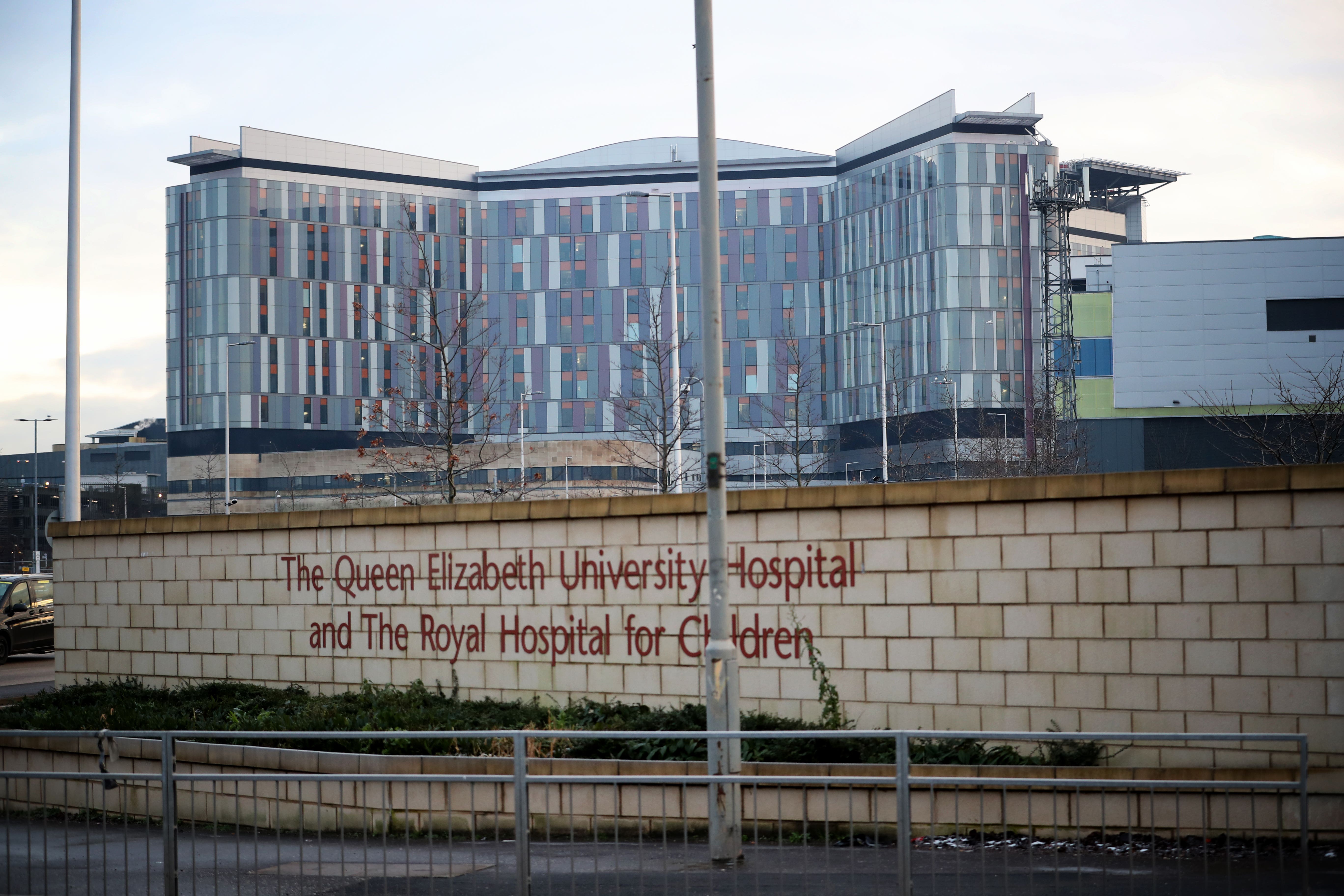Doctors told ‘not to speak up’ at meetings on infectious bacteria, inquiry hears
The inquiry also heard meetings on potentially infected water supplies were not ‘particularly effective’.

Your support helps us to tell the story
From reproductive rights to climate change to Big Tech, The Independent is on the ground when the story is developing. Whether it's investigating the financials of Elon Musk's pro-Trump PAC or producing our latest documentary, 'The A Word', which shines a light on the American women fighting for reproductive rights, we know how important it is to parse out the facts from the messaging.
At such a critical moment in US history, we need reporters on the ground. Your donation allows us to keep sending journalists to speak to both sides of the story.
The Independent is trusted by Americans across the entire political spectrum. And unlike many other quality news outlets, we choose not to lock Americans out of our reporting and analysis with paywalls. We believe quality journalism should be available to everyone, paid for by those who can afford it.
Your support makes all the difference.Doctors were told “not to speak up” during “tick-box” meetings on infections at a hospital, an inquiry has heard.
The Scottish Hospitals Inquiry is investigating the design, construction and maintenance of the Queen Elizabeth University Hospital (QEUH) campus in Glasgow, including looking at issues with ventilation and water contamination.
It was launched in the wake of deaths linked to infections.
On Tuesday, consultant microbiologist Dr Teresa Inkster gave evidence at the inquiry.
Drawing from her witness statement, Senior counsel to the inquiry Fred Mackintosh KC said she initially did not attend acute infection control committee (AICC) meetings, though she later did but was advised not to raise grievances.
Dr Inkster had a number of concerns surrounding the water supply and other areas where harmful bacteria had colonised, the inquiry heard.
You're discussing here that you didn't attend or non-attendance at AICCs, then the fact that you attended, and you were told to attend, but not to speak
Mr Mackintosh said: “You’re discussing here that you didn’t attend or non-attendance at AICCs, then the fact that you attended, and you were told to attend, but not to speak.
“And then you discuss senior management team (SMT) meetings.
“Now, this may be my fault, but my impression gained looking at the minutes of the AICC and the incident management team (IMT), infection prevention control (IPC) management team, is they don’t seem to contain a lot of content about the various incidents this inquiry is investigating.
“They do seem to contain a lot of generalised, standardised reporting and systems.”
He asked “to what extent” the meetings and the systems the hospital had in place “was effective in supervising the risk on unusual organisms that may have arisen from the water ventilation system in the new hospital”.
She said: “I don’t think it was particularly effective. It felt to me that the AICC was a tick-box exercise. We had an agenda.
“There was a lot of reporting, but not enough reporting about serious issues on the site or outbreaks.
“We were discouraged to speak up. When I first started, I was told that’s how it was. You go there, you say very little.
“You leave it to the lead infection control doctor (ICD) to talk. It felt like a very controlled meeting at the ICC.”
I faced resistance initially with that because at the time, Health Protection Scotland had released the national pseudomonas guidance, and it did not recommend water testing
She went on to say that she had asked for water to start being tested at the hospital as early as 2015, but this idea was initially rejected due to Health Protection Scotland (HPS) guidance on pseudomonas, an umbrella term given to a number of bacterium that can cause infections in multiple parts of the body, including the skin, lungs and eyes.
She said: “I faced resistance initially with that because, at the time, Health Protection Scotland had released the national pseudomonas guidance and it did not recommend water testing.
“It was different from the guidance in NHS England and Wales at the time.”
The inquiry, taking place before Lord Philip Brodie, continues.
An NHS Greater Glasgow and Clyde (NHSGGC) spokesperson said: “The current Scottish Hospitals Inquiry hearings have yet to hear from various key staff.
“A number of NHSGGC staff will be able to provide evidence to respond to these issues and will endeavour to support the inquiry to fully establish the facts.”